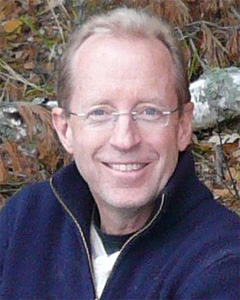
Hyperalignment: Modeling the shared deep structure of information encoded in fine scale cortical topographies
Description
Research focus:
My current research focuses on the development of computational methods for building models of representational spaces. We assume that distributed population responses encode information. Within a cortical field, a broad range of stimuli or cognitive states can be represented as different patterns of response. We use fMRI to measure these patterns of response and multivariate pattern (MVP) analysis to decode their meaning. We are currently developing methods that make it possible to decode an individual’s brain data using MVP classifiers that are based on other subjects’ data. We use a complex, natural stimulus to sample a broad range of brain representational states as a basis for building high-dimensional models of representational spaces within cortical fields. These models are based on response tuning functions that are common across subjects. Initially, we demonstrated the validity of such a model in ventral temporal cortex. We are working on building similar models in other visual areas and in auditory areas. We also plan to investigate representation of social cognition using this same conceptual framework.

